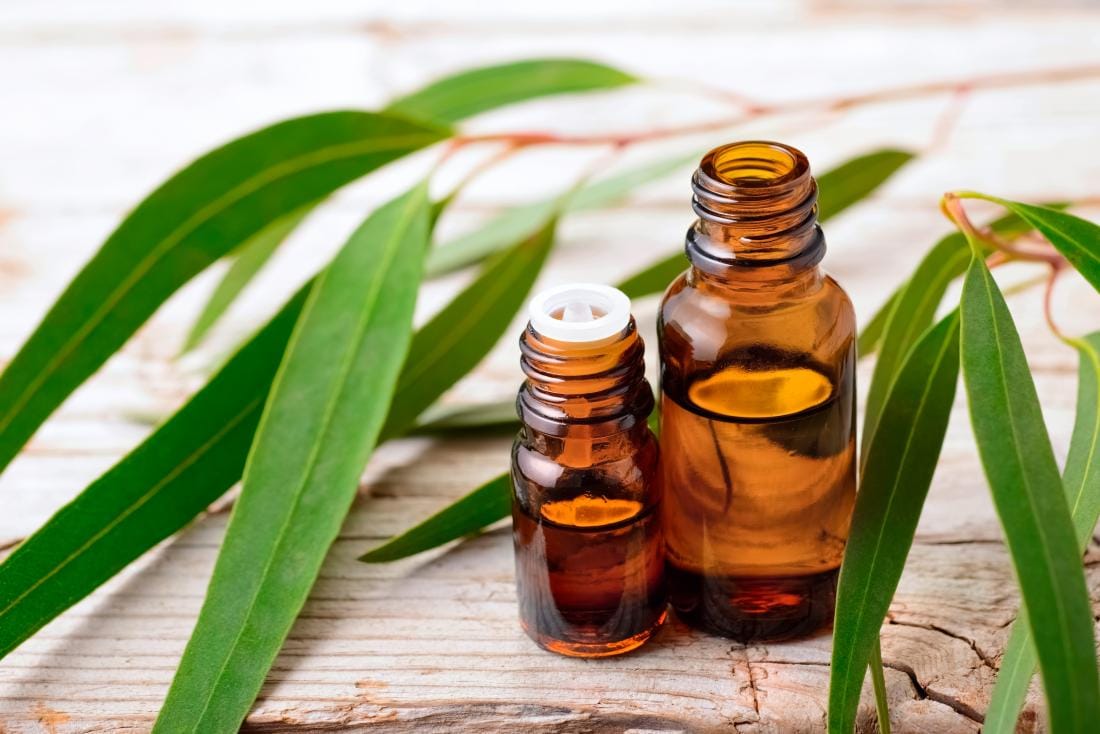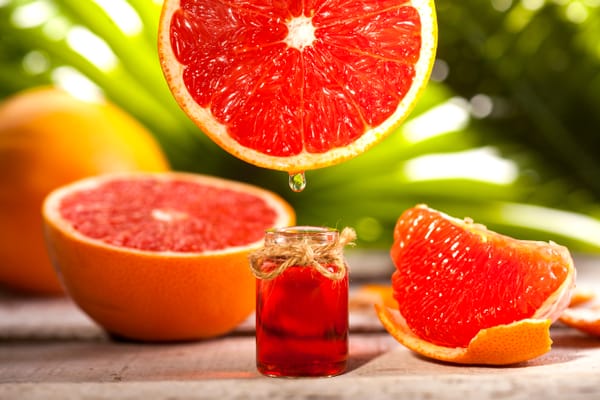Unleashing the Potential of Herbs for Joint Health
The power of herbs for joint health, folks, is something we cannot ignore. From turmeric to ginger, cat's claw to frankincense – they all pack a punch against inflammation and pain associated with arthritic conditions.

Herbs for joint health can be a game changer.
You see, when it comes to battling arthritis pain and inflammation, many people feel stuck...
Stuck with conventional treatments that may not always work. But here's the thing - nature has provided us with potent herbs that could help manage these symptoms effectively.
The power of herbs for joint health, folks, is something we cannot ignore. From turmeric to ginger, cat's claw to frankincense – they all pack a punch against inflammation and pain associated with arthritic conditions.
Table of Contents:
- The Power of Herbal Remedies for Joint Health
- Unleashing the Potential of Herbs for Joint Health
- Understanding the Various Forms of Herbal Supplements
- Unleashing the Potential of Herbs for Joint Health
- Precautions When Using Herbal Remedies
- A Holistic Approach To Managing Joint Health
- Complementary Methods Alongside Herbal Remedies
- FAQs in Relation to Herbs for Joint Health
- Conclusion
The Power of Herbal Remedies for Joint Health
Over 50 million adults and 300,000 kids in the US suffer from arthritis, a debilitating illness. But fear not - herbal remedies offer hope.
Natural solutions such as these have been utilized for millennia to combat ailments like arthritis with great success. These plant-based treatments collaborate with the body's systems to reduce signs linked to this condition, including soreness and swelling.
Turmeric: The Golden Herb
A key player in the world of anti-inflammatory herbs is turmeric. This vibrant yellow spice is home to curcumin, an ingredient renowned for its potent antioxidant properties that help reduce inflammation related to arthritis.
The Arthritis Foundation's research shows how curcumin can potentially block certain cytokines and enzymes involved in causing inflammation, offering relief from painful joints due to rheumatoid arthritis or other forms of arthritic conditions.
Aloe Vera: A Plant With Many Talents
Moving on from spices, let's talk about plants. Specifically, aloe vera - widely recognized for its healing prowess beyond just skincare applications.
This versatile herb has shown potential improvements when consumed orally or applied topically onto affected areas according to studies published by The Journal Of Alternative Complementary Medicine. It provides soothing relief while also combating inflammatory responses within your body, which are responsible for causing discomfort among those suffering from rheumatoid arthritis.
Discover the power of herbs for joint health. Turmeric's curcumin can block inflammation-causing enzymes, while aloe vera soothes and combats inflammatory responses. #JointHealth #NaturalRemediesClick to Tweet
Unleashing the Potential of Herbs for Joint Health
Exploring Herbs with Anti-Inflammatory Properties
The exploration of herbs for joint health is an intriguing journey, especially when we delve into those possessing anti-inflammatory properties. These herbal remedies have been known to offer potential relief from arthritis pain.
We begin our exploration with turmeric, a staple in Asian cuisine and traditional medicine. The active element curcumin provides it with its famous anti-inflammatory properties, which may be useful in decreasing inflammation connected to rheumatoid arthritis.
Turmeric's Synergy With Black Pepper
An interesting fact about this golden spice is that the absorption of curcumin improves significantly when consumed alongside black pepper. This combination has shown promise as a natural remedy for treating arthritis and relieving joint pain.
Cat's Claw & Eucalyptus: Herbal Allies Against Inflammation
Moving on, cat's claw comes forward as another powerful herb recognized by the Arthritis Foundation. Its ability to dampen inflammatory response makes it beneficial for individuals suffering from chronic conditions like rheumatoid arthritis. Similarly, eucalyptus also holds potent anti-inflammatory properties, making it popular among integrative health practitioners.
Borage Oil: A Powerful Natural Solution?
A special mention goes out to borage oil due to its high content of gamma-linolenic acid (GLA). Research suggests GLA aids in maintaining cell structure and promoting healthy functioning of joints - crucial factors towards managing symptoms related to rheumatoid arthritis. A 2017 research study hinted at improvement in patients' condition upon consumption but cautioned against possible side-effects, thus underlining the importance of consulting healthcare professionals before starting any new treatment options.
Versatility Of Aloe Vera For Joint Health
Aloe vera deserves recognition not just for skincare but also as an effective remedy for combating discomfort caused by inflamed joints, owing largely to its powerful capabilities to combat inflammation. The plant has long been employed by healers across cultures globally for soothing different ailments, including Arthritic Pain
Key Takeaway:
Dive into the world of herbs for joint health, from turmeric's anti-inflammatory prowess to cat's claw and eucalyptus' inflammation-dousing abilities. Don't overlook borage oil or aloe vera either - they're nature's little helpers in battling arthritis pain.
Understanding the Various Forms of Herbal Supplements
The plethora of herbal remedies available provide many alternatives for those in search of natural relief from joint discomfort. These supplements come in many forms - from capsules and teas to creams or gels.
Capsules often house concentrated doses of beneficial herbs like turmeric or willow bark extract. They are an excellent choice if you prefer convenience over taste when it comes to your health regimen. However, remember that not all brands offer equal quality, so make sure you opt for products with high-quality active ingredients.
Turmeric & Black Pepper: A Powerful Duo
Studies have shown how consuming black pepper alongside turmeric can enhance curcumin absorption significantly. Curcumin, found in abundance within Turmeric, holds strong anti-inflammatory properties which may help alleviate arthritis pain.
Piperine present in black pepper boosts our body's ability to absorb curcumin by up to 2000%. This combination amplifies their individual benefits, creating a potent duo against inflammation associated with rheumatoid arthritis. This highlights why considering synergistic combinations while choosing herbal supplements could be advantageous towards achieving improved results.
Besides pills and capsules, other popular forms include teas such as green tea known for its antioxidant properties potentially helping reduce inflammation linked with joint discomforts. For localized relief without systemic side effects sometimes seen with oral medications, topical applications like creams containing extracts from plants including willow bark prove effective. You also find tinctures, liquid extractions resulting after soaking chosen herbs into an alcohol or vinegar solution across several weeks, extracting valuable compounds they hold. Lastly, loose herbs used directly during cooking provide therapeutic value along with adding unique flavors, enhancing meals simultaneously.
Each form presents different advantages worth exploring based on personal preferences and lifestyle choices, ensuring this journey toward integrative health remains tailored just right, catering to the specific needs each individual brings forth.
Key Takeaway:
Herbal supplements for joint health come in many forms, each with its own benefits. Capsules offer convenience and concentrated doses of beneficial herbs like turmeric, while teas provide antioxidants that may reduce inflammation. Topical creams can deliver localized relief, and tinctures or cooking with loose herbs allows you to extract valuable compounds over time. Always consider the quality of ingredients and potential synerg
Unleashing the Potential of Herbs for Joint Health
Explore the potential of herbs for joint health. Uncover the anti-inflammatory benefits of natural remedies and how to utilize them for optimal joint health.
Herbs and an Anti-Inflammatory Diet: A Natural Approach to Joint Health
The power of a diet rich in anti-inflammatory foods is increasingly recognized for its potential benefits in managing conditions like arthritis. When combined with the therapeutic properties of certain herbs, this dietary approach may offer significant relief from joint pain.
In essence, combining these powerful herbal remedies with a balanced diet can provide natural support for joint health.
Sipping Green Tea: An Antioxidant-Rich Addition to Your Routine
Green tea's antioxidative features, connected to reduced inflammation related to arthritis agony, are worth thinking about. Beyond being a comforting beverage choice throughout the day or evening, green tea offers additional advantages towards improving overall joint health by slowing cartilage destruction caused by inflammatory processes.
- Add fresh grated turmeric root or powdered form into soups or stews during the cooking process (remembering that black pepper aids curcumin absorption).
- Ginger-infused teas can be enjoyed at any time - consider swapping out one regular cuppa joe for this beneficial alternative.
Culinary Creativity Meets Therapeutic Benefits
Dive into the world of herbs for joint health. Discover how a diet rich in anti-inflammatory foods and antioxidant-rich green tea can ease arthritis pain naturally. #JointHealth #NaturalRemedies Click to Tweet
Precautions When Using Herbal Remedies
Natural remedies, including herbal supplements for joint pain and inflammation, can be a promising addition to your healthcare regimen. However, it's essential to understand that these solutions may come with potential side effects or interactions.
The lack of strict regulation on dietary supplements by the FDA means quality can differ significantly among brands. Therefore, consultation with health professionals is advised before incorporating any new supplement into your routine.
Medical Consultation: A Crucial Step
If you're considering using herbs such as willow bark extract or turmeric in treating arthritis symptoms, discussing this decision with your doctor should always be step one. This professional evaluation ensures safety based on personal medical history and existing medications.
Potential risks associated with specific herbs need consideration too; some could cause allergic reactions while others might lead to liver damage under certain circumstances. For instance, long-term use of Willow bark - often used for its anti-inflammatory properties - has been occasionally linked to stomach issues and kidney complications.
Balancing Traditional Treatments With Herbal Supplements
It's essential to think about natural alternatives like loose herbs, yet recall that they are not substitutions for drugs (NSAIDs) or other treatments suggested by healthcare providers when managing rheumatoid arthritis symptoms.
- Maintaining Balance: Incorporating appropriate herbal remedies alongside conventional treatment options potentially results in more effective symptom management over time.
A Holistic Approach To Managing Joint Health
- Tai Chi & Acupuncture: Complementary methods like tai chi exercises or acupuncture sessions, along with herbal supplementation, have shown promise in improving pain management in individuals suffering from chronic conditions like rheumatoid arthritis.
- This holistic approach aims at overall wellness rather than merely alleviating discomforts related specifically only to joints.
Key Takeaway:
While herbal remedies can boost joint health, it's crucial to consult with healthcare professionals before starting any new supplement due to potential side effects and interactions. Remember, these natural solutions complement traditional treatments rather than replace them. Embrace a holistic approach for effective symptom management and overall wellness.
Complementary Methods Alongside Herbal Remedies
In addition to herbal remedies, other non-pharmacological approaches can be employed for managing arthritis symptoms such as physical activity and acupuncture. These include various forms of physical activity and alternative therapies such as acupuncture.
The Role of Physical Activity
Engaging in regular exercise is vital for controlling arthritis pain. Routine workouts help maintain joint flexibility and strengthen the muscles surrounding the joints, reducing discomfort and stiffness associated with rheumatoid arthritis.
The Arthritis Foundation advocates low-impact exercises like swimming or cycling, specifically tailored for those battling with this condition. Tai chi stands out among these activities due to its potential benefits on balance improvement and stress reduction on painful joints.
A study published in 2012 by Arthritis Care & Research demonstrated how participants practicing tai chi experienced significant improvements in their pain levels compared to counterparts who didn't engage in any form of physical activity.
The Benefits of Acupuncture
In addition to fitness regimes, some individuals find relief through complementary treatments such as acupuncture sessions, which can be integrated with herbal remedies. This age-old Chinese medicinal technique involves inserting thin needles into specific points on your body to stimulate healing energy pathways known as meridians.
An analysis conducted by JAMA Internal Medicine suggests evidence indicating that acupuncture might effectively alleviate chronic conditions, including osteoarthritis, when used alongside conventional treatment options.
Discover the power of herbs, exercise, and acupuncture for joint health. From tai chi's balance benefits to acupuncture's healing energy pathways - there are natural ways to manage arthritis pain. #JointHealth #NaturalRemediesClick to Tweet
FAQs in Relation to Herbs for Joint Health
What herbal medicine is good for joints?
Turmeric, ginger, frankincense, and cat's claw are some herbs known to have anti-inflammatory properties that can potentially alleviate joint pain.
What is the golden herb for arthritis?
The "golden herb" refers to turmeric due to its active compound curcumin, which has powerful anti-inflammatory effects beneficial in managing arthritis symptoms.
What vitamins or herbs help with joint pain?
Vitamins C and E, along with herbs like aloe vera, borage oil, eucalyptus, and thunder god vine, may aid in reducing inflammation associated with joint pain.
Can a herbalist help with arthritis?
A trained herbalist could provide guidance on the appropriate use of medicinal plants, including those that might support the management of arthritis symptoms. Always consult healthcare professionals before starting any new treatment regimen.
Conclusion
Exploring the power of herbs for joint health can open up a world of natural, effective treatment options.
The anti-inflammatory properties found in turmeric, cat's claw, eucalyptus, and other herbs could potentially alleviate arthritis symptoms.
Borage oil and aloe vera stand out due to their unique benefits for maintaining cell structure and reducing inflammation, respectively.
Different forms of herbal supplements such as pills or teas offer flexibility in consumption, while an anti-inflammatory diet complements these remedies perfectly.
But remember - always consult with healthcare practitioners before starting any herbal regimen. And don't forget about physical activity!
If you're ready to harness nature's ingredients for your health journey, Functional Herbs is here to guide you every step of the way. Visit us at Functional Herbs today and discover how traditional medicine can help make you healthy again using nature's finest resources like herbs for joint health. Your path towards healthier joints starts here!




